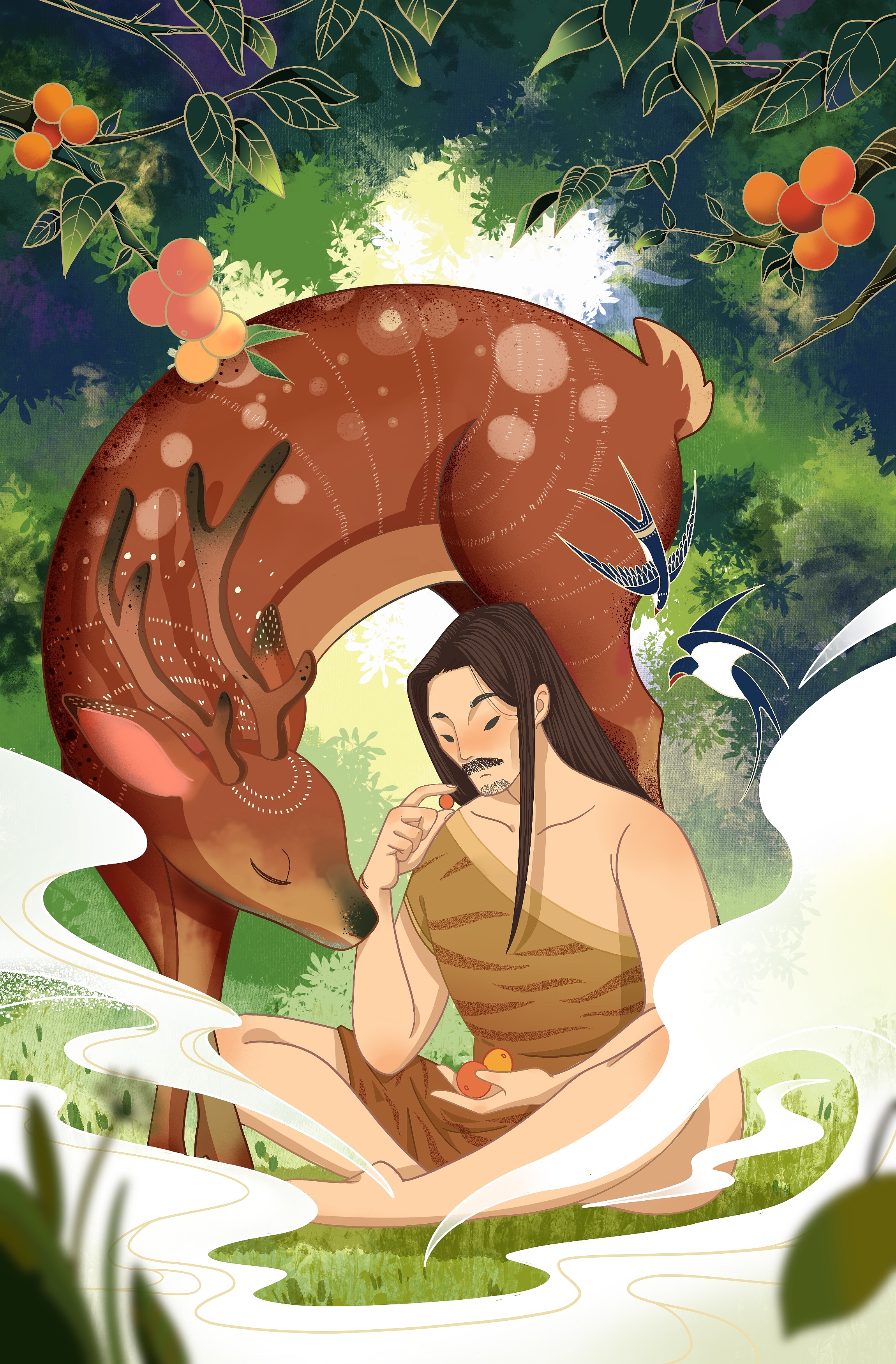Shennong:A Legendary Divine Farmer
Over the centuries, there have been many versions of the story of Shennong.

A creative picture of a legendary divine farmer: Shennong (PHOTO:VCG)
Shennong, or "Divine Farmer," is a legendary cultural hero of China, believed to have taught the ancient Chinese people how to use agricultural tools and herbal medicine.
The earliest written record connecting Shennong to the practice of Chinese herbal medicines is found in Huai Nanzi, the Chinese philosophical classic from the Han dynasty around 122 BC.
Almost 5,000 years ago, ancient people suffered from hunger and numerous diseases. Shennong was said to feel great pity for them. Determined to find safe food and remedies for his people, he started to hike among the mountains, sampling hundreds of herbs to test their medicinal value. The valuable work and knowledge gained by Shennong was handed down to generations, becoming the oldest book about Chinese traditional medicine, known as Shennong Ben Cao Jing or The Classic of Herbal Medicine, and Shennong is often referred to as "the God of Chinese herbal medicine."
The book contains information on 365 species of herbs and medicinal plants divided into three volumes. The first volume consists of a collection of "upper herbs," which includes 120 harmless plants with "nourishing properties," such as ginseng and goji berries.
The second volume includes 120 therapeutic substances intended to treat the sick, but have a little toxic, or potentially toxic properties of varying degrees. This category includes female ginseng and peonies. The substances of this group are described as "middle herbs."
In the last volume, there are 125 substances which cause strong reaction and are often poisonous. Peach kernels and Chinese elder herbs are among those depicted. These herbs are referred to as "low herbs."
Over the centuries, there have been many versions of the story of Shennong. However, by all accounts, because of his efforts, countless herbs are now used in traditional Chinese medicine and the importance of traditional herbs are now widely accepted.